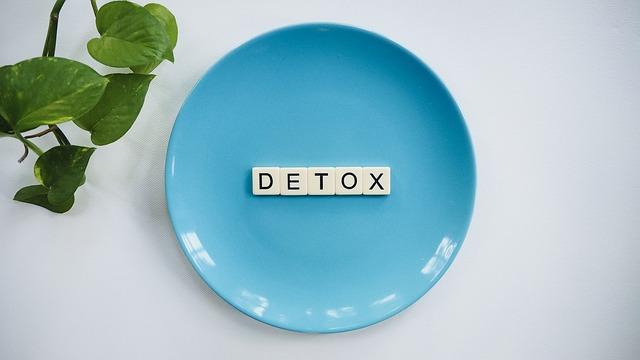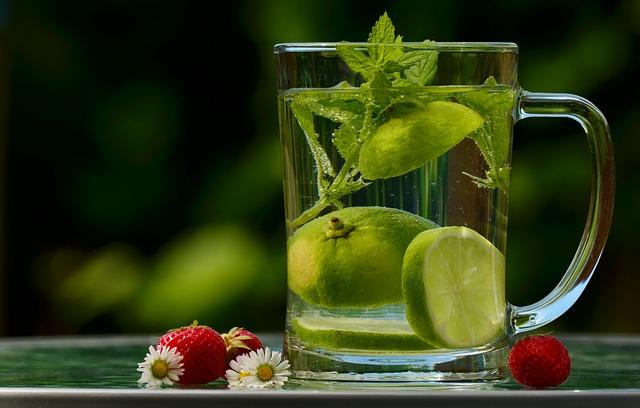In the kaleidoscope of modern wellness trends, detox meals have emerged as a vibrant, alluring pattern, promising to cleanse the body and rejuvenate the spirit. As social media influencers and health enthusiasts tout their benefits, detox diets have gained a devoted following, becoming almost a rite of passage for those seeking to reset their systems. Yet, amid the colorful smoothie bowls and meticulously curated meal plans, a crucial question lingers: are detox meals scientifically effective, or are they merely the latest ephemeral trend in the vast landscape of health fads? This article embarks on a journey through the realm of detoxification, exploring the scientific evidence—or lack thereof—behind these popular dietary regimes. By peeling back the layers of marketing and myth, we aim to uncover the truth about detox meals and their place in the pursuit of genuine well-being.
Understanding the Science Behind Detoxification
Delving into the biochemical processes of detoxification, it becomes clear that our bodies have innate mechanisms designed to eliminate toxins. The liver, kidneys, lungs, and skin work tirelessly to filter and expel unwanted substances. These organs play crucial roles in a complex network of enzymatic reactions that convert toxic compounds into less harmful substances, which are then excreted. While detox meals often claim to support these processes, the science suggests that the body’s natural systems are already highly efficient.
To understand if detox meals offer additional benefits, it’s essential to examine the components typically included in these diets. Many detox plans focus on foods rich in:
- Antioxidants: These combat oxidative stress and may support overall health.
- Fiber: Promotes digestive health and can aid in toxin elimination through bowel movements.
- Hydration: Sufficient water intake is critical for kidney function and the removal of waste.
While these elements are beneficial, they are not exclusive to detox diets and can be incorporated into a balanced, regular diet. Thus, while detox meals may not be a scientific necessity, they can be a healthy addition to one’s lifestyle if approached with an understanding of the body’s own detoxification prowess.
Nutritional Benefits and Misconceptions of Detox Diets
Detox diets often claim to purge the body of toxins, promising improved health and vitality. Nutritionally, they may encourage increased consumption of fruits, vegetables, and water, which are undeniably beneficial. These diets can lead to a higher intake of essential vitamins and minerals, such as Vitamin C, potassium, and antioxidants, which support the immune system and promote overall well-being. Additionally, by reducing processed foods and sugars, detox meals can help in resetting taste preferences and encouraging healthier long-term eating habits.
However, there are misconceptions surrounding detox diets that merit attention. It’s important to note that the human body is already equipped with its own sophisticated detoxification system, primarily through the liver, kidneys, and lungs. The notion that detox diets are necessary for toxin elimination is not supported by scientific evidence. Moreover, some detox programs may be overly restrictive, leading to nutritional deficiencies and potential health risks. When considering a detox diet, it’s crucial to focus on balanced nutrition and consult healthcare professionals to ensure it aligns with individual health needs.
- Increased intake of fruits and vegetables
- Higher consumption of water
- Reduction of processed foods and sugars
- Body’s natural detoxification processes are overlooked
- Lack of scientific evidence supporting detox claims
- Potential nutritional deficiencies from restrictive diets

Evaluating the Impact of Detox Meals on Overall Health
In the pursuit of improved well-being, detox meals have emerged as a popular choice for those looking to cleanse their bodies of toxins. But do these meals deliver scientifically-backed benefits, or are they simply another fleeting trend? Detox meals typically consist of foods rich in nutrients and low in processed ingredients, aiming to support the body’s natural detoxification processes. Advocates claim that these meals can enhance energy levels, improve digestion, and boost mental clarity.
- Nutrient-Dense Ingredients: Detox meals often include fruits, vegetables, whole grains, and lean proteins, providing essential vitamins and minerals.
- Low in Processed Foods: By minimizing processed ingredients, these meals may reduce the intake of additives and preservatives.
- Hydration Focus: Many detox plans emphasize increased water intake, supporting kidney function and overall hydration.
While the anecdotal evidence is plentiful, scientific studies offer a mixed verdict. Some research suggests that a balanced diet inherently supports detoxification, questioning the need for specialized meals. Nonetheless, the emphasis on whole foods and hydration can undeniably contribute to healthier eating habits.

Expert Recommendations for Safe and Effective Detox Practices
When considering detox meals, it’s crucial to prioritize safety and efficacy. Here are some expert-backed tips to ensure your detox journey is both beneficial and health-conscious:
- Consult with a healthcare professional: Before starting any detox regimen, speak with a doctor or a registered dietitian. They can help tailor a plan that aligns with your health needs and goals.
- Focus on whole foods: Incorporate plenty of fruits, vegetables, whole grains, and lean proteins. These foods naturally support the body’s detoxification processes without the need for extreme measures.
- Stay hydrated: Water is a fundamental part of any detox. It aids in flushing out toxins and keeping your body functioning optimally.
- Listen to your body: Pay attention to how your body reacts to certain foods and detox practices. If something doesn’t feel right, it’s essential to adjust your approach.
By following these guidelines, you can enjoy a detox experience that is both safe and effective, without falling prey to unproven trends.
In Retrospect
As we close the chapter on our exploration of detox meals, we’re left standing at the crossroads of science and trend. While the allure of a fresh start is undeniably captivating, it seems that the scientific jury is still out, deliberating the true efficacy of these culinary cleanses. The world of wellness is vast, and as we navigate its offerings, it’s crucial to balance aspiration with evidence. Whether you find yourself drawn to the vibrant plates of detox cuisine or skeptical of their promises, remember that the journey to health is personal and ever-evolving. So, as you sip your green juice or savor your next meal, may you do so with an informed mind and an open heart, ever curious and ever discerning.

